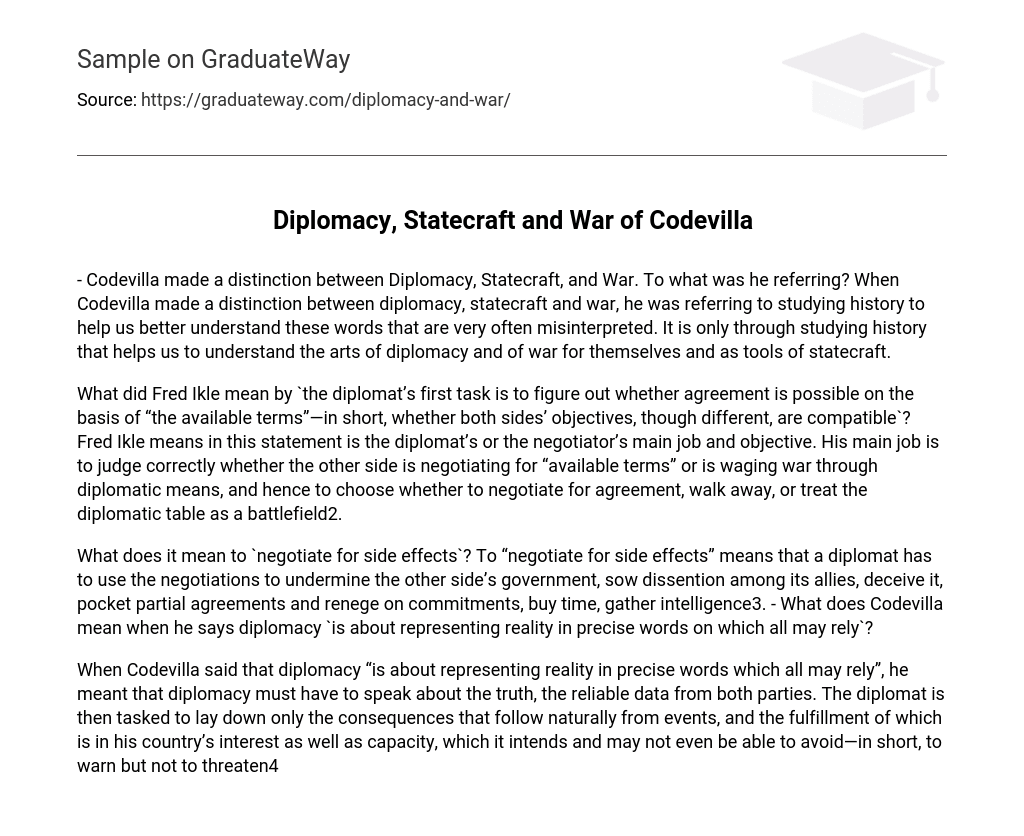– Codevilla made a distinction between Diplomacy, Statecraft, and War. To what was he referring? When Codevilla made a distinction between diplomacy, statecraft and war, he was referring to studying history to help us better understand these words that are very often misinterpreted. It is only through studying history that helps us to understand the arts of diplomacy and of war for themselves and as tools of statecraft.
What did Fred Ikle mean by `the diplomat’s first task is to figure out whether agreement is possible on the basis of “the available terms”—in short, whether both sides’ objectives, though different, are compatible`? Fred Ikle means in this statement is the diplomat’s or the negotiator’s main job and objective. His main job is to judge correctly whether the other side is negotiating for “available terms” or is waging war through diplomatic means, and hence to choose whether to negotiate for agreement, walk away, or treat the diplomatic table as a battlefield2.
What does it mean to `negotiate for side effects`? To “negotiate for side effects” means that a diplomat has to use the negotiations to undermine the other side’s government, sow dissention among its allies, deceive it, pocket partial agreements and renege on commitments, buy time, gather intelligence3. – What does Codevilla mean when he says diplomacy `is about representing reality in precise words on which all may rely`?
When Codevilla said that diplomacy “is about representing reality in precise words which all may rely”, he meant that diplomacy must have to speak about the truth, the reliable data from both parties. The diplomat is then tasked to lay down only the consequences that follow naturally from events, and the fulfillment of which is in his country’s interest as well as capacity, which it intends and may not even be able to avoid—in short, to warn but not to threaten4





